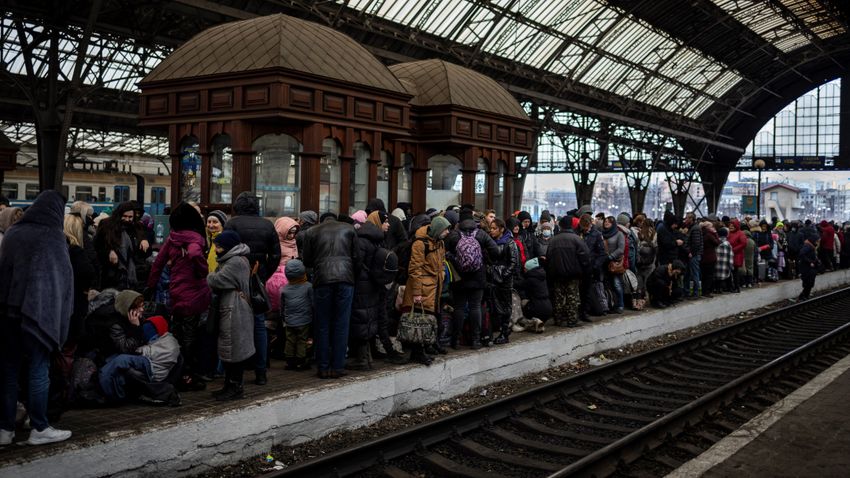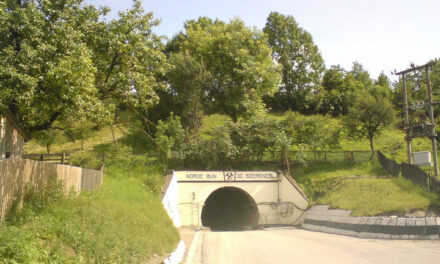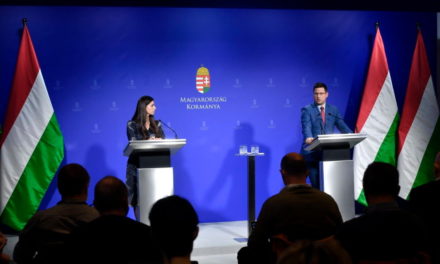Hungary rejected illegal migrants in 2015, and now it welcomes refugees - and with this clear decision it will save European asylum law, argued Boris Kálnoky, head of the Media School of the Mathias Corvinus Collegium, in the columns of the Swiss magazine Die Weltwoche.
The former Budapest correspondent of Die Presse and Die Welt also commented: the ongoing war in Ukraine clearly proves that the two member states, which have been heavily criticized by Brussels, are doing everything they can to help those fleeing the war, so reconciliation and compromise with Poland and Hungary would be due .
On March 4, Margaritisz Szkínász, the vice-president of the European Commission, visited Budapest and the Hungarian-Ukrainian border to see for himself the reception of refugees from the war-torn country. Afterwards, he told journalists: Hungary is on the good side of history. On the common border with Ukraine, ordinary people, government agencies, civil organizations and security forces try to provide generous and effective help to those in need, and Skínász praised the people he saw there for their generosity.
How times change! Seven years ago, when hundreds of thousands of people crowded into Europe at Hungary's southern border, Viktor Orbán and Hungary became the bad guys of the EU because the country closed its borders. This did not correspond to the »European way of life«. Hungarians and Poles were labeled racist and xenophobic in the Western media. Yet people's willingness to help was just as spontaneous and comprehensive then as it is today
- argued Boris Kálnoky, head of the Mathias Corvinus Collegium Media School, in his analysis published in the Swiss magazine Die Weltwoche
Debate over building a fence
The former Budapest correspondent of Die Presse and Die Welt recalled that at the peak of the migration crisis in 2015, Hungary acted in accordance with European law, which obliges the member states with external borders of the European Union to protect their borders against illegal immigration. In addition, European law requires that persons in need of protection be granted asylum - for example, if there is a war in their own country.
And this is exactly what Poland and Hungary (as well as other Central European countries neighboring Ukraine) are doing now in the most generous way possible. European law was and is clearly applied then and now. The EU owes them a debt of gratitude and an apology for the wild attacks at the time. With their arguments and actions, Poland and Hungary saved European refugee law from complete collapse
Boris Kálnoky argued in his analysis. The journalist also explained in detail how the migratory pressure on Europe in 2015 and 2016 differs from the wave of refugees experienced in the last two weeks, as a result of the Russian-Ukrainian war, on the Central European member states. As he wrote, those immigrants from civil war-stricken Syria tried to reach wealthy Europe in the hope of a better life. They traveled through a series of other countries where they were not exposed to any danger, but their goal was to reach the richest countries in the EU. The goal of the vast majority of them cannot therefore be understood as escaping from danger, but in their case we can speak of permanent emigration, because they did not intend to return to their homeland from the rich European countries.
However, since the European Union tried to deal with this de facto mass immigration with the instruments of refugee law - considering that the migrants all applied for asylum - the instrument of asylum law became a tool of depriving the member states of their rights in the matter of immigration
argued Boris Kálnoky. The journalist added: since then, the EU has done a lot to create an atmosphere as if Russia were not the Union's mortal enemy, but Poland and Hungary. The flood of accusations that these two countries are betraying "European values" has been joined by incessant calls for their severe punishment. This was also the case a few months before the Russian attack on Ukraine, when Belarusian dictator Alexander Lukashenko tried to blackmail the EU with migrants from the Middle East. Poland, led by Deputy Prime Minister Jaroslaw Kaczynski, responded by building a border fence similar to Hungary's.
And the EU apparently did not understand that the Eastern European country was the target of a hybrid attack and refused Poland financial assistance to build the fence. According to Brussels' point of view, the EU does not finance border closures. Interior Commissioner Ylva Johansson also had an explanation for this: the money would be missing from elsewhere. From the coast guard - the German journalist revived the recent events.
There is no source of Covid from Brussels either
Brussels is also delaying recovery funds for Hungary and Poland. The member states cannot receive community funds for restarting the EU economy after the coronavirus pandemic either, citing "European values". Charles Michel, the president of the European Council, said last year that EU support for border fences is not legally possible. It was a bit like Belarus had directly attacked the EU, but before it tried to defend itself, it would first seek the opinion of the competent ombudsman, argued Boris Kálnoky.
Meanwhile, the EU did everything to weaken Poland and Hungary. For example, the EU is currently demanding a fine of 1.5 million euros per day from Poland. 500,000 euros because they are still mining lignite and another million euros a day because Warsaw is hesitant to implement the ruling of the European Court of Justice aimed at strengthening the independence of the judiciary. This means more than five hundred million euros annually
– the German journalist outlined the soured relationship between Warsaw and the EU. Boris Kálnoky also reminded that neither Poland nor Hungary received money from the EU fund to deal with the economic consequences of the pandemic, but at the same time, both member states must guarantee the loans from which this fund is fed. Poland will not receive money due to constitutional concerns. After all, there is the EC decision mentioned above, which the EU can refer to as justification. Hungary does not receive funds either, but also without specific justification from the EU, and without the Hungarian government being informed of what they need to do to obtain the funds.
In the case of Poland, EUR 36 billion in grants and loans from the recovery fund are at stake. This is how much Warsaw applied for out of the total of 58 billion available for Poland. The EU is withholding 7.2 billion euros for Hungary.
In addition, the new rule of law mechanism implemented last December also means that the EU can also withhold money from the cohesion fund - this is about four percent of the GNP of the two countries.
A compromise would be overdue
In this situation, Poland and Hungary have so far admitted a total of approximately 1.4 million refugees as the two frontline states of the Ukrainian crisis. The EU is now trying to show itself to be generous and presents itself as a problem solver: it has made five hundred million euros available to support countries that have received refugees from Ukraine.
They suddenly love Poland and Hungary very, very much. Poland has put the cost of accepting one million refugees at two billion euros, but at the same time, Warsaw will expect significantly more people in need of help. Slovakia is also talking about more than one billion euros, which it would need. In Romania, they are supposedly still calculating, but in any case, it is a three-digit million sum. And Hungary has not even publicly announced numbers. He is busy helping, not asking for money
Boris Kálnoky summarized the situation of the Central European member states. The journalist emphasized: it is clear that the amount of five hundred million euros intended for the biggest refugee crisis since the Second World War is light years short of the eight hundred billion euros that the EU is allocating to support recovery after the Covid-19 epidemic.
"The EU, which now calls for unity in the crisis, has done a lot to divide and weaken the union. Reconciliation and compromise with Poland and Hungary would be due," argued the journalist. He added: Russian President Vladimir Putin pursues a policy of aggression that is ultimately also directed against the EU. Poland is the most reliable partner vis-a-vis Russia. Hungary has perhaps been too friendly towards Moscow so far.
If all this is so, could it be in Europe's interest to alienate these two countries more and more every year? Shouldn't we rather do everything to ensure that everyone quickly finds a modus vivendi with Warsaw and Budapest and gets along with them?
asks Boris Kálnoky.
Stop the sinking of Europe
Prime Minister Viktor Orbán's political adviser and namesake, Deputy Minister Balázs Orbán, sees it this way: a part of the European elite is fully focused on ideologically harmonizing the different member states. On the other hand, however, they barely deal with issues such as geopolitics, the military, the energy market or strengthening competitiveness. This political direction must be stopped immediately, otherwise Europe's descent into insignificance cannot be stopped. The first step in the right direction would be the immediate payment of the required reconstruction funds, argued Boris Kálnoky.
Featured image: People wait for a train to Poland at Lviv train station in western Ukraine to leave the country due to Russia's attack on Ukraine on February 27, 2022. (Photo: MTI/AP/Bernat Armangue)













